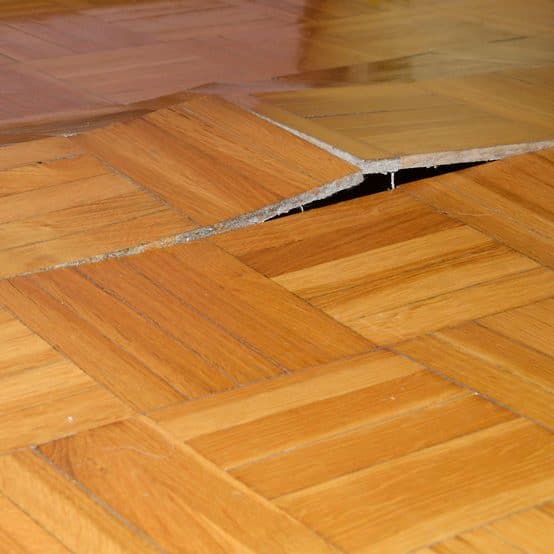It is not unheard of to have a plumbing leak in your home. You notice the water leaking from a fixture or pipe, and call the pros at your trusted plumbing company to fix it. But what many homeowners are not aware of is that leaks can also occur underneath their home’s slab foundation. And when these leaks occur, they can be very difficult to recognize.
What Is A Slab Leak
If your home is built on a concrete slab foundation, then the water lines are running under the concrete and stub up through it at various points in your house. When any of these pipes or fittings begin to leak, the issue is called a slab leak. And it is a very serious situation for the homeowner. In addition to wasting water, these leaks can erode the soil supporting your house, damage the concrete foundation, and promote toxic black mold growth.
Are Slab Leaks Common?
Fortunately for many homeowners, slab leaks are not common in most of the country. However, they occur more frequently in areas that experience earthquakes. The shifting ground in these regions often causes water pipes to crack or shatter. It is also important to note that older homes suffer more slab leaks than newer ones. This is commonly considered a result of the older, more brittle piping in homes that are several decades old.
How To Spot A Slab Leak
There are a few indications of a slab leak under your home that are not visual. The first sign of a severe leak could be a significant drop in water pressure throughout your home. This issue tells you that there is water leaking from the water supply line under your home. The other common indication of a hidden slab leak is a substantial increase in your water bill. You might not have noticed your water pressure decrease. But hopefully, you will quickly begin to question an unexplainable increase in your water bill. Then there are the visual signs that you could discover that will clue you in to a slab leak.
Damage To Flooring
If a slab leak continues for an extended period of time, you will begin to notice areas of your flooring that appear to be warped or domed. This is where the wood flooring or even linoleum has already started to heave or swell from the added moisture. If you notice any of these issues in your house, it is imperative that you call a plumber to schedule emergency slab leak detection.
Foundation Heaving
Your concrete foundation can actually be lifted or heaved out of place by a slab leak. A large amount of water will expand the soil under your house and move the foundation. When a foundation heaves, the motion can damage your home and its piping, structural integrity, and interior finishes. You might notice cracked walls, door frames that are no longer square, or a variety of other very unusual issues. When you see any of these problems, never ignore these vital signs that could be pointing to a slab leak under your home.
A Sign You Can Feel
If you notice an unusually warm area on a wood or tile floor, there is a good chance that you have a leak in your hot water piping. A carpeted floor will be obviously moist, and the water will feel warm. As soon as you notice warm water or a warm area on any of your home’s floors, a call to a slab leak detection specialists is essential in getting the problem fixed quickly.
Slab leaks are always very serious issues and can cause irreparable damage to your home if left unrepaired. Even if you only think that you might have a slab leak under your home, never wait. The risk is far too high. Call in the professionals immediately to prevent further expensive water damage to your home and the potential for toxic black mold growth in or under your home. We are here 24/7, so call (301) 278-8786 and know that a A Better Plumber licensed plumber will quickly and cost-effectively locate any leaks hidden under your home.







